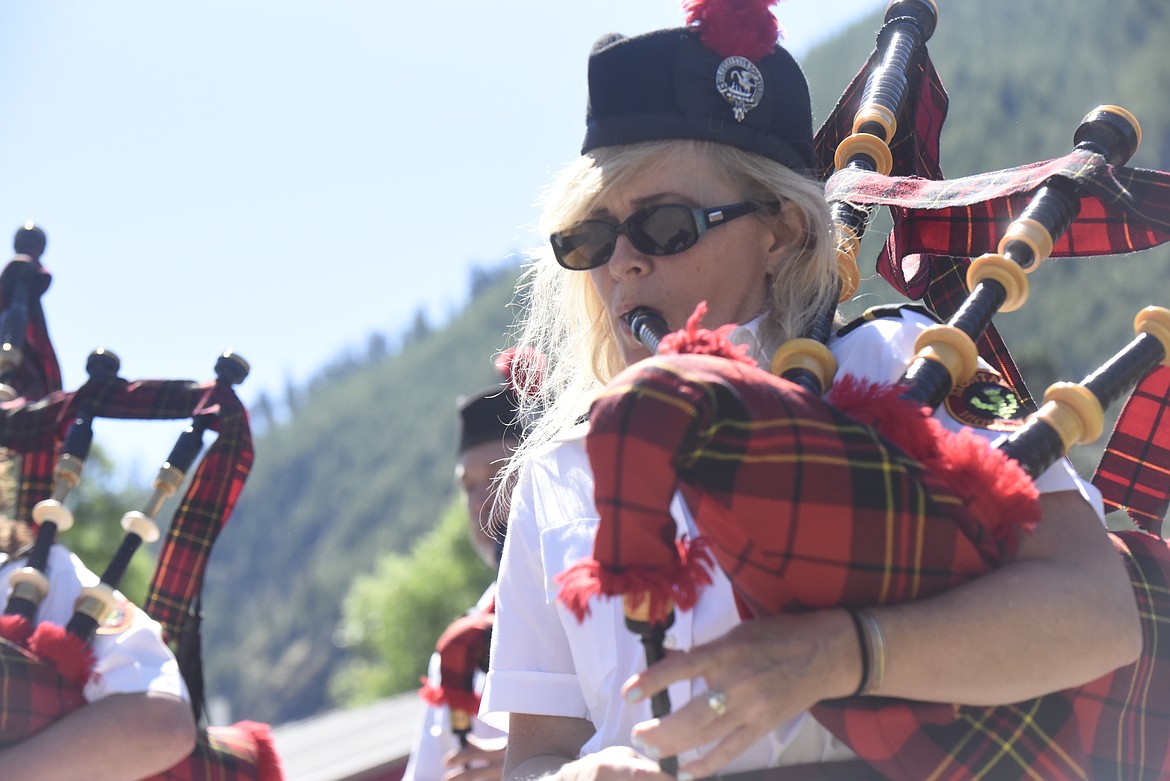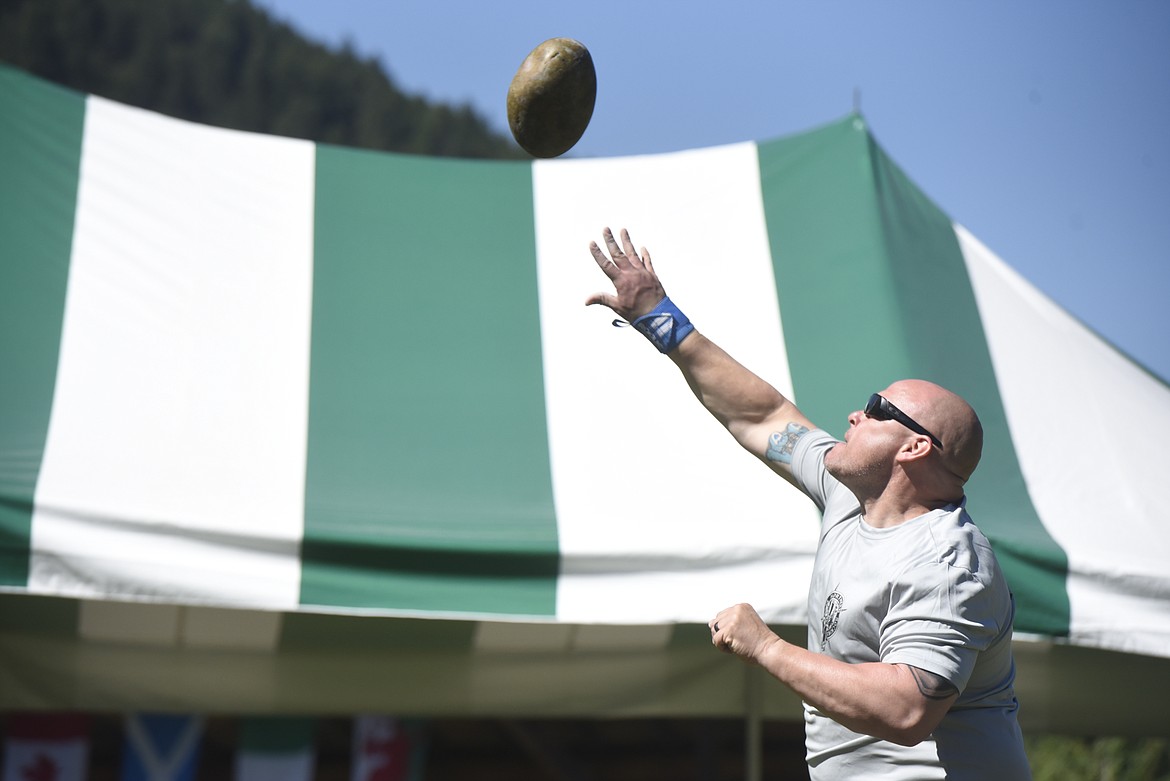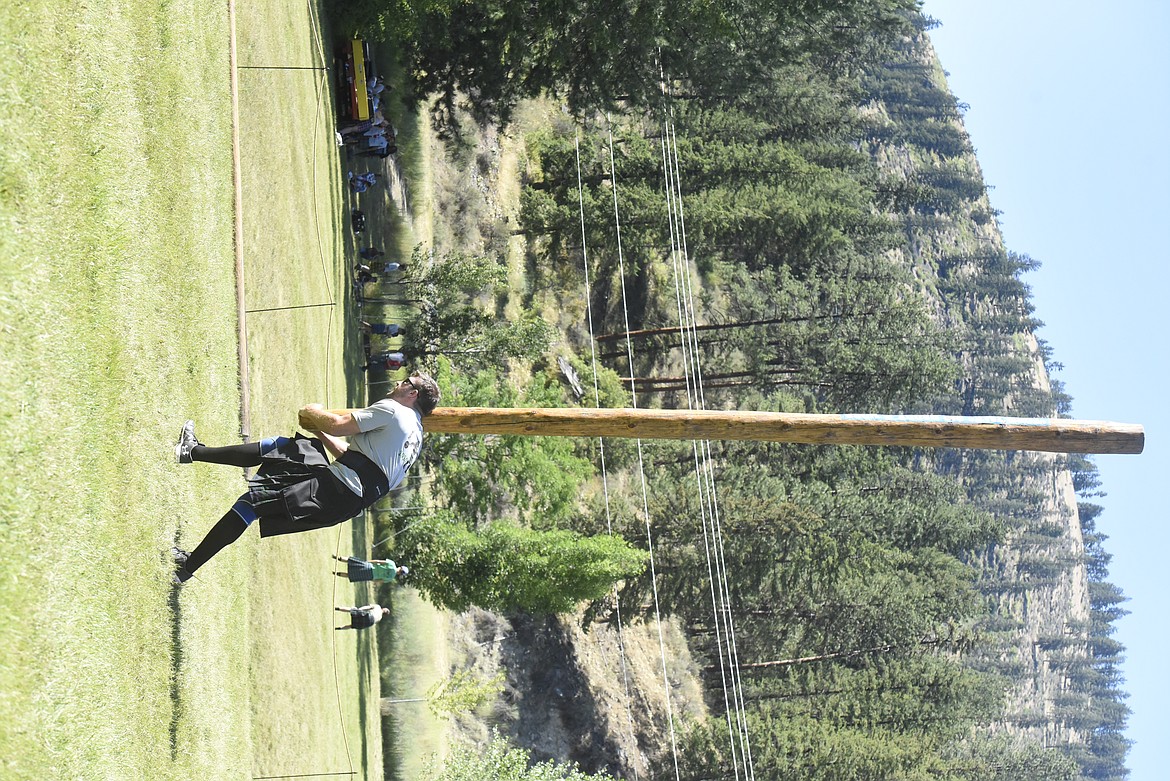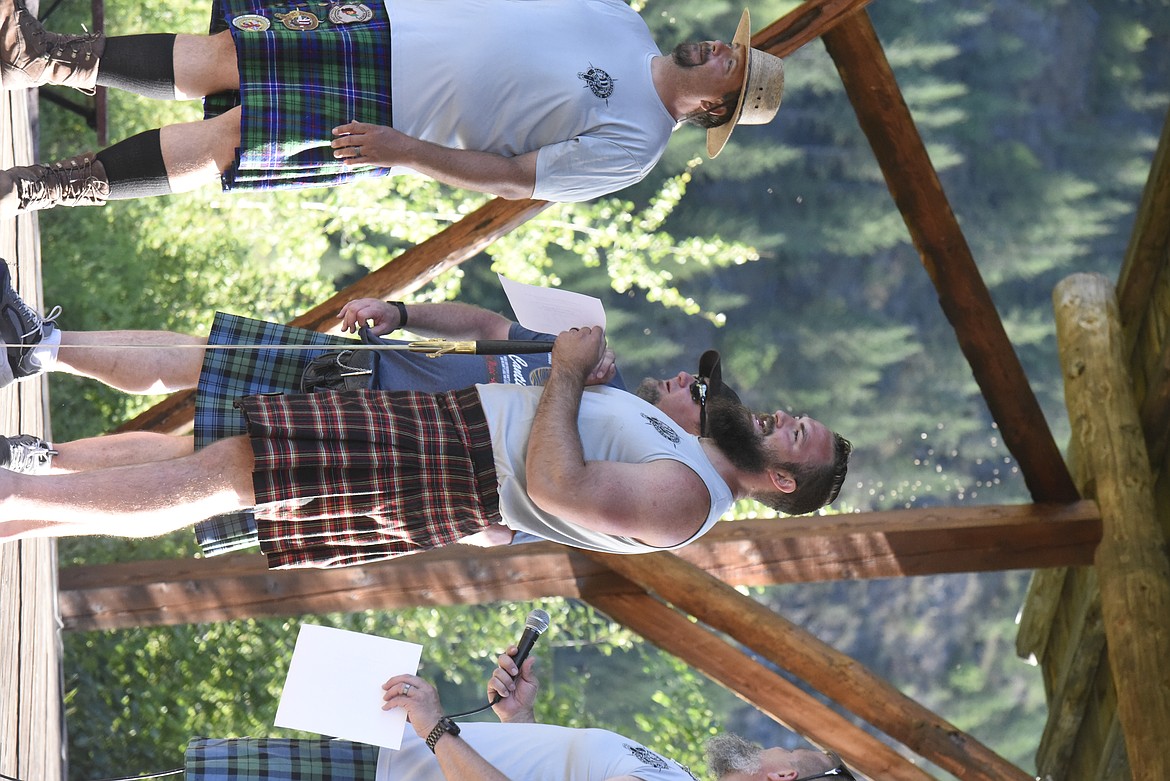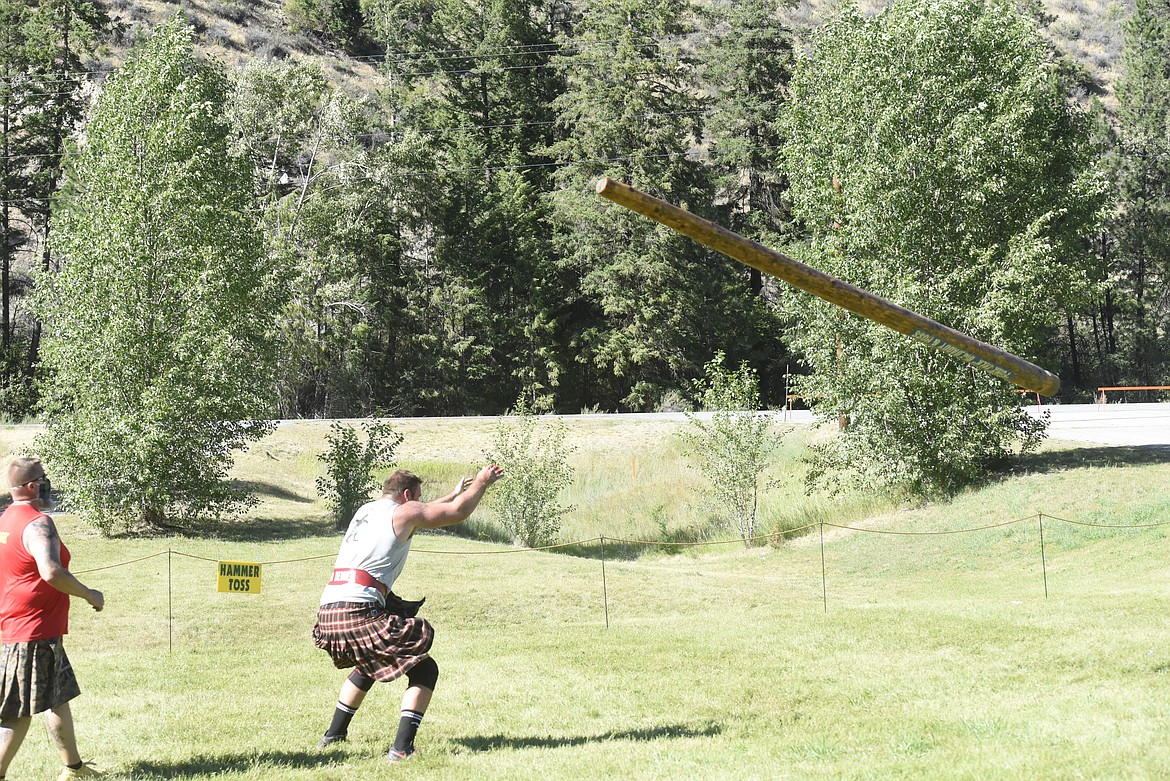Competitors go medieval at the Kootenai Highland Gathering
In front of him lay a 56-pound kettlebell weight. Above him, a horizontal pole hung suspended 12 feet off the ground. His goal: to generate enough momentum by swinging the weight between his legs to lob it clear over the bar...
Become a Subscriber!
You have read all of your free articles this month. Select a plan below to start your subscription today.
Already a subscriber? Login


